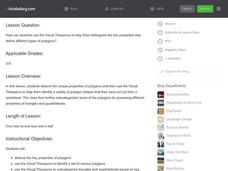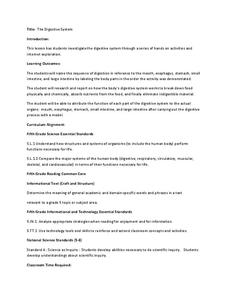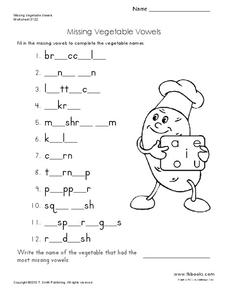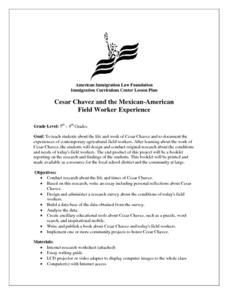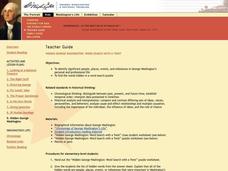Missouri Department of Elementary
Conflict Mediation – Part 1: Getting Ready
Two scholars walk into a room arguing, what is happening? Peers observe the two actors in preparation for a whole-class discussion about conflict. Learners establish a conflict, name the three approaches—passive, aggressive, and...
Workforce Solutions
Newton's Laws
Two lessons explore the connection between energy transformation and a given job. In lesson one, small groups role-play a scenario that showcases the energy transformations that may take place during a job-specific task. The second...
Curated OER
Know Your Polygons!
Students identify and categorize different polygons. In this polygons lesson plan, students research and identify properties of polygons, identify different polygon shapes, and categorize different triangles and quadrilaterals.
Walters Art Museum
The Symbolism of Allegorical Art
Introduce learners to allegorical art with four bronze sculptures by Francesco Bertos. After modeling how to recognize bias and allegory in Bertos' Africa, class groups examine the other three sculptures in the series before creating...
Curated OER
The Lion, the Witch, and the Wardrobe: Vocab Squares
Creatively develop and reinforce new vocabulary from the book, The Lion, the Witch, and the Wardrobe by C.S. Lewis, using these vocabulary squares. Each square is divided into four quadrants asking scholars to input the word, a picture,...
Curated OER
The Adventures of Tom Sawyer: Anticipation Guide
Start off your study of The Adventures of Tom Sawyer with a lesson spent exploring some of the concepts that will be present in the novel. This anticipation guide focuses on honesty and lying. After learners decided if they agree or...
Curated OER
The Digestive System
Discover how the human body's digestive system works with a brain and stomach friendly activity. Scholars taste test a variety of foods to find out how they behave once in the mouth. Class members then play a game called Move That...
T. Smith Publishing
Missing Vegetable Vowels
Kids are always being told to eat their vegetables, but this time you can tell them to spell their vegetables! Kids fill in the vowels to spell 14 different vegetables ranging from lettuce to radish.
Curated OER
Shizuko’s Daughter: Before, During, After Lesson Plan
Shizuko's Daughter by Kyoko Mori presents a vivid picture of Japanese culture and history. As kids read through the third chapter, they find novel-specific vocabulary to enhance their understanding and use context clues to determine...
Recorded Books
Teacher's Guide: The Pinballs
Dive your class into the novel The Pinballs by Betsy Byars with the support of this reading guide. Including short answer questions, a multiple choice comprehension quiz, and extension activities, a variety of materials are provided for...
American Immigration Law Foundation
Cesar Chavez and the Mexican-American Field Worker Experience
After researching and learning about the work of Cesar Chavez, your young historians will design a booklet on the conditions and needs of today's field workers and the Mexican-American field worker experience.
Smithsonian Institution
Hidden George Washington: Word Search with a Twist
Learners identify significant people, places, events and milestones in George Washington's personal and professional life. They complete crossword using facts about George Washington.
Project SMART
Rocks and Minerals: Touch the Earth
Students complete a unit of lessons on rocks and minerals. They conduct research, write e-mail questions to geologists, write daily journal entries, label maps demonstrating types of rocks/minerals found, and create a web page that...
Other popular searches
- Context Clues Worksheets
- Sequencing Worksheets
- Grammar Worksheets
- Possessive Nouns Worksheets
- Cause and Effect Worksheets
- Spanish Grammar Worksheets
- Grammar Worksheets Pronouns
- Nouns Worksheets
- Algebra Equations Worksheets
- Inauguration Worksheets
- Thanksgiving Math Worksheets
- Geometry Proofs Worksheets




